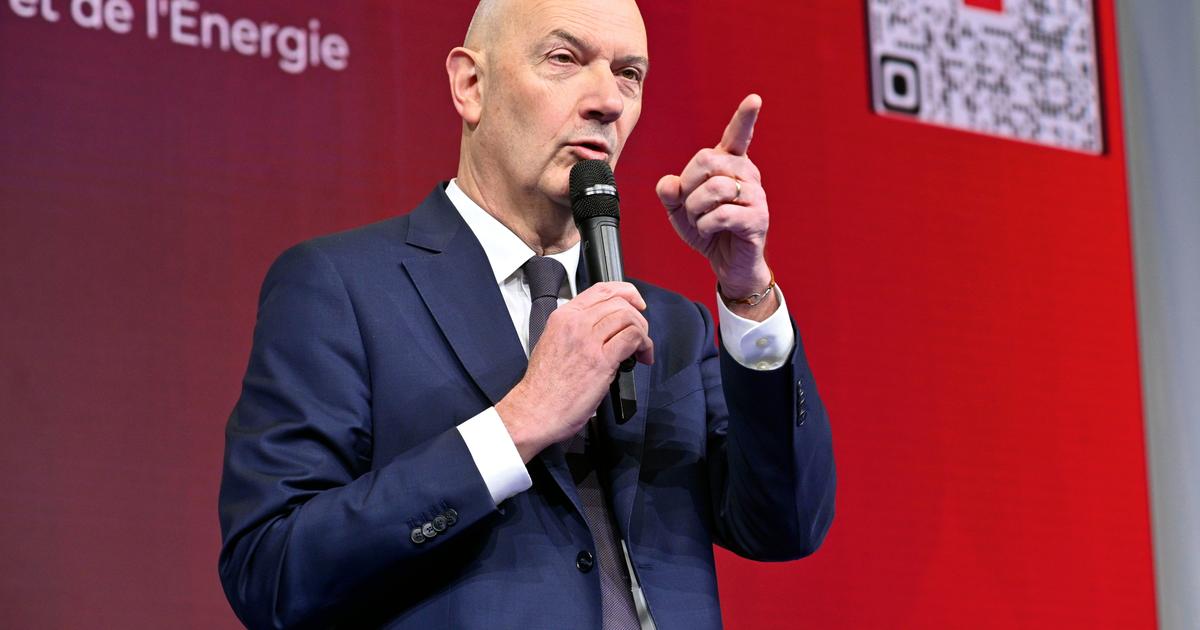Business
The capital market in Israel
Farthest from the peaks air: the inevitable elimination sale
How did Psagot, led by Zehavit Cohen, one of the leading entities in the Israeli investment house market, become one worth less than Altshuler Shaham, Milin Lapidot, Meitav Dash and Mamor Investment House?
Like Prism and Clal Finance before it, an investment house is a leader in a market dismantled with tremendous noise.
The big beneficiary: Altshuler Shaham
Tags
Zehavit Cohen
Peaks
Run Stone
Friday, 12 February 2021, 12:28
Share on Facebook
Share on WhatsApp
Share on general
Share on general
Share on Twitter
Share on Email
0 comments
The big deal between Altshuler Shaham and the Apax Fund, first unveiled by Globes, is a milestone in the local capital market.
The large and leading investment house until a few years ago will be dismantled and swallowed up by competitors, when it is already clear that its owners agree that it is worth less than competitors Altshuler Shaham, Yellin Lapidot, Meitav Dash and even Moore Investment House.
Still, although there is no way to define Apax's investment in Psagot without using the word "failure", it seems that tonight a very large stone was uncovered over the heart of Zehavit Cohen, who runs Apax in Israel.
Although the return that the fund it leads will receive from Altshuler Shaham Gamel for its long-term investment in Psagot is not at all close to what it wanted to receive until a few years ago, it also does not save the deal in terms of return even by weighting dividends distributed by Psagot.
In fact, the signing of the agreement with Altshuler Shaham Provident and Pension is an acknowledgment that Apax's strategy has collapsed and not only that the management of Psagot converted into damage to the value of the investment house, but that the delay in making a deal also led to erosion in return.
But, for Apax, that's not what matters today.
The necessity was to sell Psagot at last, when the Apax fund under which Psagot was acquired had already made its main summaries with its investors and only wanted to "get rid" of Psagot.
And it happens very unfashionably late, and with a fine at the exit.
By the way, for Apax this is a step in the right direction but it is too early to congratulate the finished product.
Completion of the deal depends on obtaining regulatory approvals, and if the deal goes awry in any way then Cohen will be left with an investment house whose employees are hurt and whose activities are bleeding money out, to competitors.
Good to know (promoted)
This button can save your life in a cardiac or cerebral event
To the full article
Very low return.
Beit Psagot (Photo: Uri Lenz)
Not like Bezeq and Tnuva
In any case, Apax, led by Cohen, reached an investment in Psagot on the waves of success in the successful realization of the fund's holding in Bezeq, alongside Haim Saban and Mori Arkin, and in parallel with another very successful deal that Cohen led from start to finish - the successful acquisition and realization of food giant Tnuva.
If Bezeq Cohen reached a deal led by its predecessor in Apax and enjoyed the realization of the holding together with the partner, then the success in Tnuva (which happened after the company fell into the heart of the "cottage protest", and which was condensed over time, when Chinese buyer Brightfood In its name.
She reached the peaks with great confidence and with a desire to streamline the investment house as much as possible.
For several years it succeeded, and it even hoped to receive a return at a value of NIS 3.7 billion for Psagot.
But over time this has changed, and the tight management perception has turned out to be a mistake, and now it is expected to receive a consideration of NIS 910 million (which could swell to about NIS 1 billion, after adjustments).
This is a company value that is much lower than the value on the Altshuler Shaham Gamel stock exchange (NIS 3.9 billion) and the value of Yellin Lapidot as derived from Atreu Capital Markets (about NIS 1.5 billion) and also from Meitav Dash (worth about NIS 1.1 billion) and Mor Beit Investments (NIS 940 million).
By the way, these sums, unlike those of Psagot, do not include a control premium - and this illustrates the pit depth of Psagot.
The investment that has not proven itself
It is difficult to say how much Apax lost in its investment in Psagot because it is a private company that does not specify how many dividends it distributed, although it is known that there were hundreds of millions of shekels, and it is not known how Apax took Psagot into account in terms of loans and book entries.
But, in light of the fact that Apax has paid over the years (in two moves) a total of about NIS 2.5 billion, it is clear that not only is there no success here, but it is an investment that has not proven itself and is a failure.
This understanding is sharpened in light of the fact that the investment was made as early as 2010 and in the years since then there has been so much positive support from the capital markets that many other investment alternatives, including "just" investing in a bank deposit, would have yielded a much better return for the Apax Fund.
Altshuler Shaham: From boutique to market leader
And what about the purchasing side?
In the early years of Apax's dominance of the investment house, it continued the positive trend that characterized it under York, and continued to grow and become a market leader, while establishing its position.
On the other hand, Altshuler Shaham is still considered a small investment house, a growing boutique, but certainly not the market leader.
Towards the end of the previous decade this changed and Altshuler Shaham overtook Psagot as a market leader.
Altshuler Shaham has done most of its growth over the years in organic ways, although you have heard from time to time made purchases.
One of the acquisitions was the acquisition of a partner, Yair Levinstein, who established the investment house's provident fund.
It is now clear that this activity, of long-term savings management, is the heart of Altshuler Shaham, and is that at the center of his attention and in the garden he wants in the peaks.
In fact, if Altshuler Shaham had managed to acquire Hellman Aldubi a few months ago (at the end of the Phoenix won the race over Hellman Aldubi) it might have blocked him from acquiring Psagot.
By the way, Altshuler Shaham has learned a lesson from the acquisition of Menora Mivtachim Financial Mutual Funds, and now does not want Psagot Mutual Funds.
Now waiting for regulators
But, in order for the deal to be completed there are several major hurdles topped by the three regulatory hurdles.
And what about regulation?
For several years now it has been clear to everyone that peaks are for sale.
Whether in one piece or in disassembly into parts, the investment house had to find a new house.
This is because Apax has long wanted to sell it.
For the most part, an investment fund is not a long-term strategic investor like Apax in the Peaks.
She comes for a few years, does a turnaround and then comes the sales phase.
In the case of Psagot it turned out that the change was for the better and not for the better, and this, along with the recognition that there are not many buyers waiting in line who have the financial capacity to pick up such a deal and are not local financial entities, and who want to take on such a big deal.
Also, at the end of the day there are currently two main entities with a desire to purchase and willingness to spend a lot of money - Altshuler Shaham who also wanted Hellman Aldubi just a few months ago, and the Phoenix, which acquired Hellman Aldubi and may also purchase parts from Peaks.
Therefore, although it is an unmistakable merger, it has a basis, when Altshuler Shaham will not become bigger than the competitors he is now frustrated with almost eye to eye: the big insurance groups.
Thus, the current deal, if and when it is completed, heralds the transformation of Altshuler Shaham into a financial giant similar to Migdal, Harel, Menora Mivtachim, Clal Insurance and Phoenix-Excellence, which manage huge trillions of billions of shekels in public funds, along with several other prominent bodies from my home. The investments, led by Meitav Dash, Yellin Lapidot, Moore and others,
Consolidation as in banks and insurance
Whether the transaction is approved in accordance with current estimates, under these and other conditions, or not, there is a clear trend in the financial markets in general and in the public savings management markets in particular: a trend of consolidation.
What has already happened in the banking world, where the sixth largest bank has recently been merged into the third largest bank in the market, has also happened in insurance, with an emphasis on public savings management activities in life insurance (there are "only" six and a half players in the field).
Now this is also happening in investment houses.
Marketers with dozens of competing entities are created markets with a low number of super competitors.
As a result of these moves, the banks currently have six independent players who are expected to be joined by another soon (the digital bank), the insurance has the top five in life insurance and next to them Ayalon (in the general insurance sector there are double-digit competitors, including new players) and the investment houses have hundreds Management bodies but a growing number of huge bodies.
But, the sale to Altshuler Shaham is not the end of the verse.
This is because he does not want mutual fund management activities and Psagot Securities. This means that in the coming months the financial market will boil over due to sale efforts to third parties. Who might buy from Altshuler Shaham Gamel or Apex the mutual funds and managed portfolios and Psagot's member? And almost all of them are big and well-known players. In this context, the names of Clal Insurance, IBI, Phoenix's Excellence, maybe even Harel, etc. are heard.
According to estimates, the consideration in the deal is divided so that NIS 320 million is paid for the activities that Altshuler Shaham does not want. (Management of mutual funds and Psagot Securities, through which Psagot manages portfolios and holds a member of the stock exchange).
This means that for Altshuler Shaham, about NIS 600 million is paid for the core asset he wants, Psagot's provident fund and pension.
It also means that if there is bidding on mutual funds, managed portfolios and Psagot’s stock exchange member, then Apax and Altshuler Shaham will benefit from it.
By the way, in 2020 Altshuler Shaham offered NIS 230 million for Hellman Aldubi while targeting the new pension business and the management of the old funds and the business of managing the provident funds and his study funds.
On the face of it, the pricing for Hellman Aldubi then reflected a multiplier of about 1.13% on the assets in the new provident, continuing education and pension, while the deal with Apax now reflects a peak of 1.07% (excluding the old above-mentioned pension fund).
Like Prism and Clal Finance
And so we come to the point that peaks will soon be lost and cease to be peaks.
It disbanded a few years after it was the "investment house" in the news.
This is not the first time that a leading investment house run by factors that are not the founders and that leverages itself for growth, is making a huge noise.
This happened earlier in Prism, which the Markstone Fund set up and intervened in its management until there was no choice but to dismantle it (and in doing so saved some of the failed investment by joining as minority shareholders in Psagot, in another era), and Clal Finance which was the Clal Insurance Group's investment house. .
What does this teach us?
First, imposing a debt on entities whose cash flow is subject to sharp changes in market raising and redemption modes can be problematic.
Second, that most of the investment houses that grow over the years are the ones that have distinct homeowners, who founded the business and who grow with it, and mostly do not leverage beyond recognition, as if they were an "American corporation."
However, this is not a course body - and it is important to emphasize that Psagot is a very strong body with capabilities for its customers even today, and remains among market leaders even if the deal does not materialize - but one that despite its power and ability still disappears from the market as an independent player.
Want samples?
Altshuler Shaham, led by Gilad Altshuler and the Shaham family, and his subsidiary Altshuler Shaham Provident and Pension, a member of the investment house Yair Levinstein who is himself one of the owners of the company.
Billin Lapidot, the homeowner, is also the founder, as is Moore Investment House, which has become the fastest-growing entity in the camel market after Altshuler Shaham.
Even Meitav Dash still maintains the charcoal of yesteryear, even though it has been managed by a professional and responsible manager for years, with analysts and IBI finding the controlling shareholders deeply involved in the business, out of a long-term view and not out of a desire to grow here and now, at all costs.
This is also true in smaller investment houses, such as Infiniti and others.
By the way, it is not that an investment house controlled by an investment body is bad, but that the attempt to be a market leader while leveraging on the one hand and becoming more efficient on the other, may end badly.
And this has happened more than once or twice - with Apax, Markstone and Clal Insurance in general.
Psagot workers are still in trouble
All of this has an impact not only on the financial market, but also on Psagot employees.
It has been a while since the Psagot workers' committee feared what had been forged between Apax and Altshuler Shaham, for fear that it would threaten their professional future.
In this context, they also took exceptional sanctions, including the shutdown of the investment house.
Now they and the Psagot management will be required to reach an understanding, while the investment house must continue to operate as usual, as if there is no deal on the table, if only because of the possibility that there will be no deal in the end.
But, it's not easy.
As far as is known, there is not much trust between the parties and the dialogue between them does not go smoothly, while at the same time it is not a successful deal for Apax so there is no upside in the deal to share and the fund is not motivated to give employees a share of the shrunken consideration.
All of these signify that for the workers at the peaks of the island the clarity about their future has not changed for the better tonight, and months of doubts are in store for them.
Share on Facebook
Share on WhatsApp
Share on general
Share on general
Share on Twitter
Share on Email
0 comments









